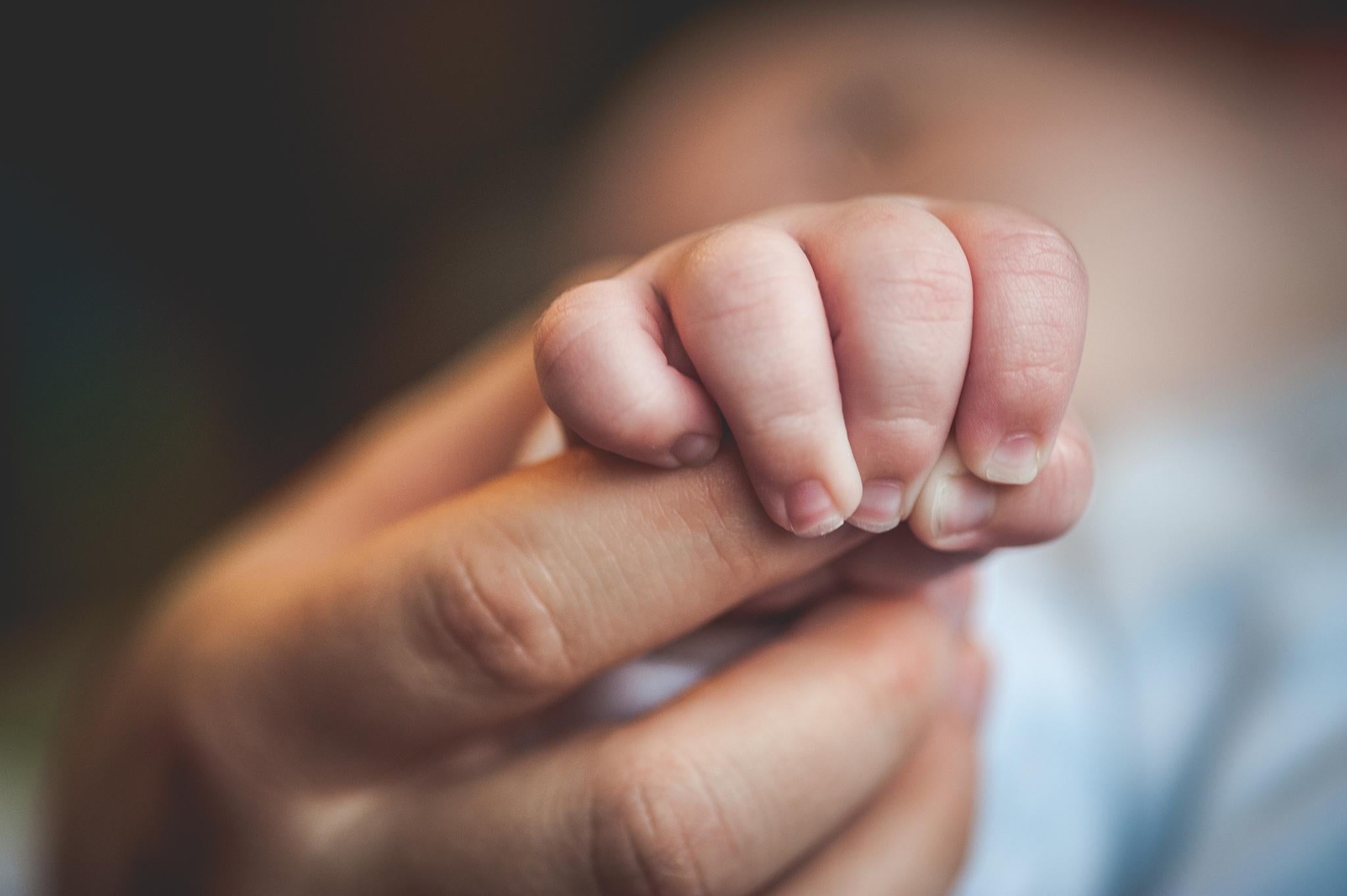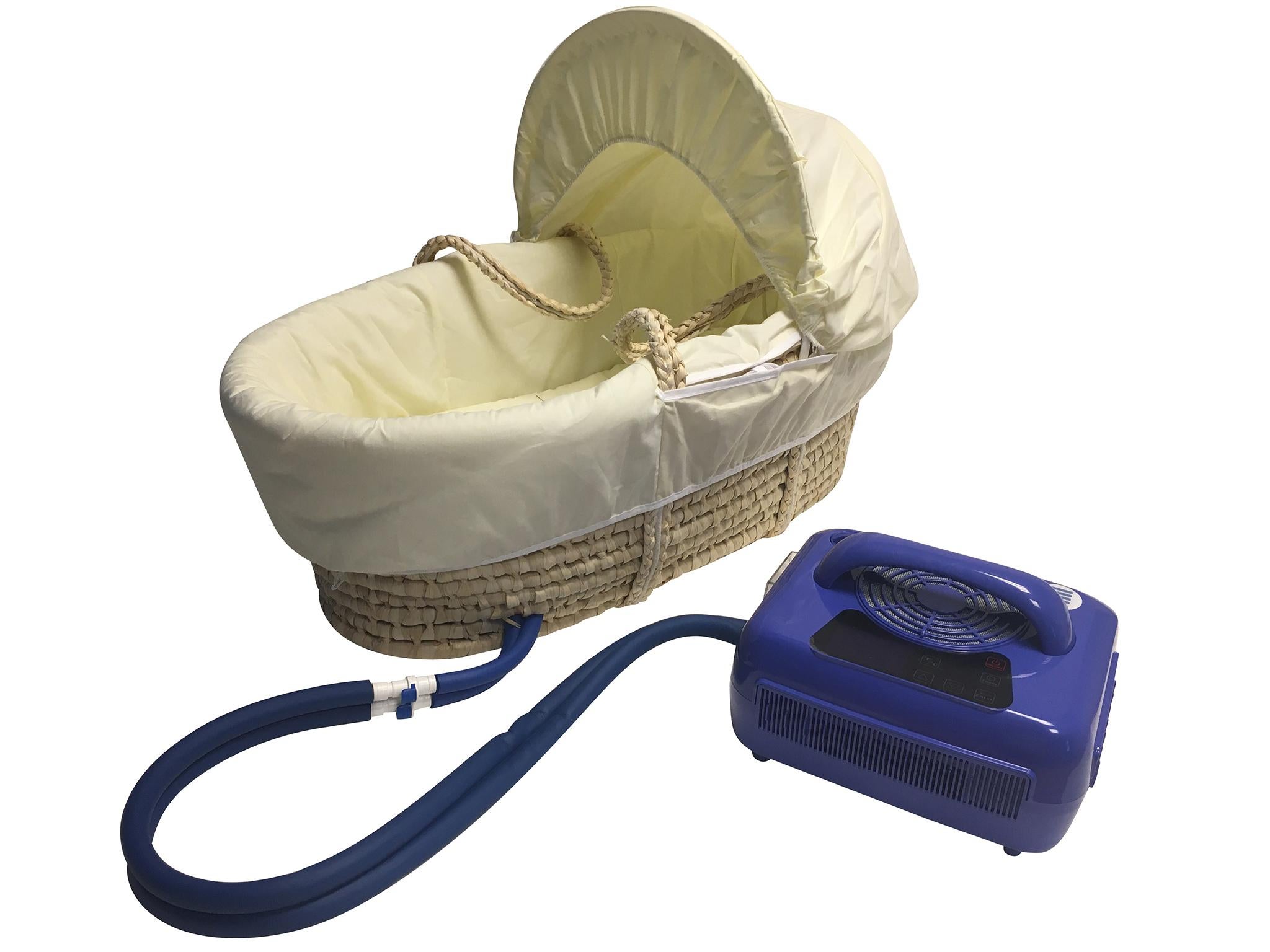Cuddlecots: Invention allows parents of stillborn children to spend more time with them
For many grieving parents, a Cuddlecot can mean spending a few more days with the baby they carried for nine months

When a baby is born stillborn, parents can sometimes only have a few hours to spend time with their child and say goodbye.
The amount of time parents can spend with a stillborn is usually restricted because the body of the infant can deteriorate in warm rooms, especially if it has been dead for a few days.
Flexmort developed the CuddleCot – a cot which cools the baby and therefore prolongs the amount of time parents can spend with their stillborn infant - in 2011.
Simon Rothwell, a founder of CuddleCot and former policeman, started the company after previously working on cooling devices for deceased obese people and then visiting children’s hospices where bodies tended to be kept in cold rooms along with the parents who would stay for days with a deceased child, while being extremely cold themselves.
In hospitals, the Cuddlecot might allow the parents to spend a night with the baby. However, if the mother has had a traumatic labour and has been unable to see their baby for a few days this might be longer. Mr Rothwell says how long the baby can be kept in the Cuddlecot depends on a number of variables including when the baby died and how often it has been taken out of the cot. He is aware of a family who kept their baby for a few weeks over Christmas because they did not want to be apart from it at that time of year.

“They have carried a baby for nine months generally and the only time and memories they will get will be for that day or two," Mr Rothwell told The Independent. "So, it’s absolutely so important for families and it really does help them. The feedback we get has been phenomenally positive.”
The frequent use of Cuddlecots has mainly happened through word-of-mouth, which Mr Rothwell says is good considering the “horrific” nature of the topic the product caters to. They are used in 92 per cent of hospitals in the UK as well as hospitals and children’s hospices in the USA, Canada and New Zealand. The hospitals tend to buy them from Flexmort who then provide them for free to the families.
“Most hospitals will offer families the choice. The difficult part is that stillborns are quite common and there might be two people at the hospital that need one yet only one can get it.”
Mel gave birth to her stillborn baby, Finley, in 2009 after undergoing an emergency caesarian when his heart rate dropped. At the time,a Cuddlecot was not available but being as though Finley died minutes before birth, he did not deteriorate quickly so Mel and her partner were able to spend three days with him in a bereavement suite.
“Though we didn’t know what was possible, what we could do, the staff were fantastic making suggestions and supporting us,” Mel told The Independent. “We have photographs and videos from this time. We changed him, he stayed with us the whole three days. We have footprints, and casts, gave him gifts and dressed him in different outfits.
"The bereavement midwife helped me to prepare to say goodbye. She asked me what I wanted my last memory to be, and took photographs of us on our last night, suggested I kiss my son and didn’t bat an eyelid when I broke down and explained that I wanted to change his nappy… All these things have helped us so much. The memories have made Finley real, tangible to other people, and our time with him was so precious.”
Mel later raised money to provide a CuddleCot for the Musgrove Park hospital in Taunton who helped her so much through her own trauma. She has also set up a charity, Towards Tomorrow Together which supports grieving parents of stillborn babies in the West Midlands and Somerset, saying she always recommends CuddleCots.
“I have known parents who have been able to see their baby after being seriously unwell and unconscious for a number of days. The cuddle cot is particularly helpful for babies born at an earlier gestation, or who have been dead for a number of number days. These families ordinarily may only be able to spend a few hours before the baby deteriorates too much, meaning that things have to happen so quickly… It is a key piece of equipment in supporting families after the loss of a baby, allowing extra time, slowing down the necessity to make decisions quickly which they may regret, and allowing more families the chance to take their baby home to grieve in their own way.”
Recently, a couple used a Cuddlecot for 16 days to grieve for their baby. Charlotte Szakacs, 21, told The Telegraph: “I know it might not be the best option for everyone but for us it was so important to be able to have that family time… I think having the time with her made such a difference. Being able to do so many of the things you imagine like taking her out in her pram, it really helped emotionally.”
Mr Rothwell said despite the incredibly personal nature of using a Cuddlecot, sometimes the company and parents become victims of trolling.
“The trolling that goes on sometimes is just horrible,” Mr Rothwell says. “Our experience is generally positive because people who have been through it or work in these areas realise how important it is for the family… you just see it online sometimes with people trolling it saying it is ‘disgusting’. You don’t know, you’ve never walked in their shoes.”
Erica Stewart, bereavement support and awareness specialist at Sands stillbirth and neonatal death charity, told The Independent the Cuddlecot is an option chosen by many parents.
"When a baby dies it's a huge shock and there is only a small window of time for bereaved parents to create memories. One of the things they may be offered is the use of a Cuddlecot. Many parents choose this option as it allows them to spend longer, precious extra time with their baby."
Join our commenting forum
Join thought-provoking conversations, follow other Independent readers and see their replies
Comments
Bookmark popover
Removed from bookmarks